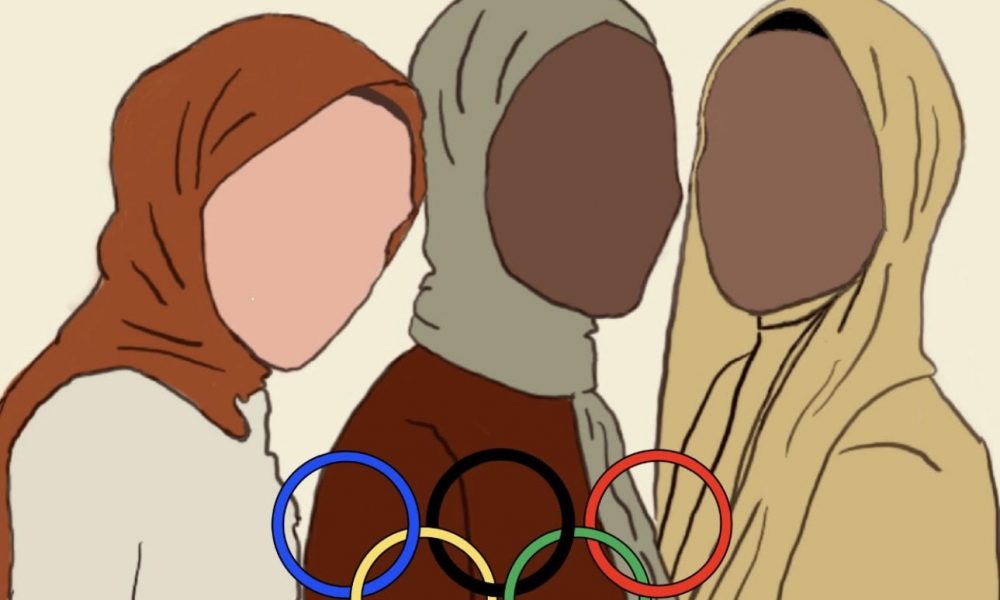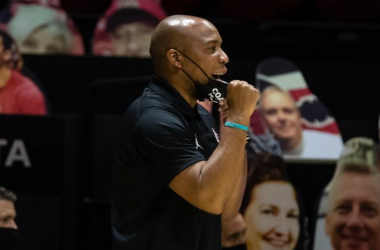Many are worried that Muslims can be impacted by the French ban on hijabs for the upcoming 2024 Summer Olympics which will be held in Paris.
On Jan. 19, 2022, the French Senate adopted an amendment to their bill on the democratization of sport. The amendment passed on a 160 to 143 vote, prohibiting any symbols with affiliation to religion during game competitions.
So far the International Olympic Committee (IOC) has not addressed the issue, but it is known that several athletes have been able to compete with a hijab.
During the 2004 Athens Olympics, women were allowed to compete in headscarves, long sleeves and pants. In the 2012 London Olympics, Muslim women who were boxers were also allowed to wear their hijabs. In 2016 Ibtihaj Muhammad was the first Muslim American to compete in a hijab at the Rio Olympics.
“What we can tell you is that the mandate of the IOC is to ensure that there is no discrimination at the Olympic Games,” a representative of the IOC told Around the Rings. “All athletes from the 206 National Olympic Committees and the IOC Refugee Olympic Team can compete and live together under one roof in the Olympic Village whatever their backgrounds or beliefs are.”
According to The New York Times, France’s soccer federation has banned players from wearing clear religious symbols, and this impacts those who wear hijabs. The government insists in “keeping with the organization’s strict secular values.”
When it comes to teams that are not in a popular or professional level, the law is not strictly enforced. But it impacts those who want to go into the professional world of sports.
In 2022, The New York Times, wrote about a soccer team of women who challenged the hijab ban. One of the members from the team was Karthoum Dembele, a 19-year-old midfielder. She wears a nose ring and had to convince her mother to let her play soccer, but she later realized that the ban would prevent her from competing.
Many other members of Dembele’s group have had no other option but to play in sports where they can wear their hijabs. Several members have experience not being allowed to the field by referees. This has caused many to feel humiliated.
Similarly, women who want to compete in the 2024 Summer Olympics may face the same reality as the soccer players. Many, like the “les Hijabeuses” group believe that the ban is discriminatory and violates their rights to their religion.
Naima Muhammad, a healthcare administration major at Long Beach State, said that society believes in having freedom and diversity but that they are selective due to their personal ideas.
“If we have diversity, we have to accept it in the way it is presented.” Muhammad said. “You cannot say you accept diversity and then go, ‘hey you! You’re not allowed to [do that].'”
Hana Nashawati, a nutrition major at CSULB, said that it is not the first time that hijabs are banned from a place or competition.
She knows that in sports there are specific wear requirements, however those with religious backgrounds are not allowed to wear their own uniforms.
“It’s sad but it is not that surprising,” Nashawati said.
Historically, the French government is known for passing laws that prohibit wearing symbols that have affiliation to religion.
The hijab and headscarf are legal in public spaces, except in government buildings, as they are symbols of religion.
But between 1877 and 1905, France passed the law of “laicité.” The law prohibits public manifestations of religion. In 2004 another law prohibited wearing clothing with religious affiliation in schools.
In 2010 the niqab and the burqa were banned from being worn on the streets. Anyone who wears the niqab or burqa is at risk of being fined €150 (which is $163.50 in the U.S.).




